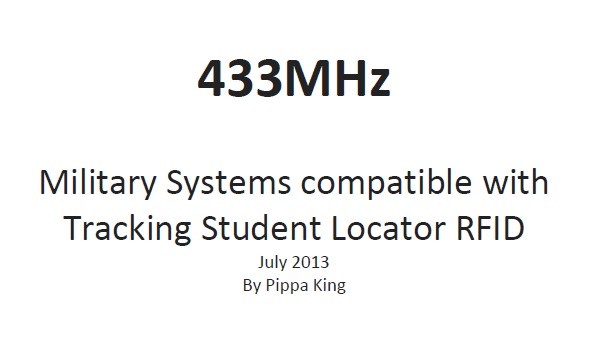
Tracking capabilities as shown in their supplier’s video ‘Optimizing the Learning Experience with a Zebra Tracking Solution”
When a UK college recently used a RFID real time location system to track students on their campuses in Chester and Ellesmere Port from 2010 – 2013. Apart from whoever thought this was a good idea somewhere in the tiers of the college management, how did the college manage to persuade the thousands of students it tracked, that this was a good idea too? How did the students consent to staff being able to “… look at them [students and staff] in groups, such as peer groups.” Locations being seen in, possibly toilets, showers, school nurse, etc?
In a reply to a Freedom of Information request, this is how the college gained fully informed consent – apparently “Information relating to the RFID tags and their purpose was covered during College induction/ enrolment.”
When pressed further on this consent gaining process the college refuses to answer questions. Only when the Information Commissioner’s Office intervenes it is revealed quite how the college considers meaningful consent is gained from students to be tracked by an RFID tag ‘bleeping’ it’s whereabouts every second – “we can confirm that the induction process is covered verbally with students. It is fair to assume that information about RFID was also communicated verbally to students”.
Erm, is that consent?
The college refused to answer a Freedom of Information request, December 2012, and upon an internal review *still* could not answer one question, which was a simply yes/no answer, as to whether or not staff were RFID tagged – astonishing. Yet when pressed by the Information Commissioner’s Office, in July 2013 (full report here) the college replied, ‘staff badge tags remained inactive and were not in active use for any purpose. Staff who had a RFID badge for first aid purposes also had inactive badges’ (why would staff carry an inactive RFID for first aid? and why not state that initially?)
It’s difficult to see what is happening here – either a shocking inability of knowledge or lack of awareness of responsibility to answer basic questions under the Freedom of Information Act. But when children are tracked in this manner, literally their every move with the potential to be scrutinized, there should be absolute transparency.












